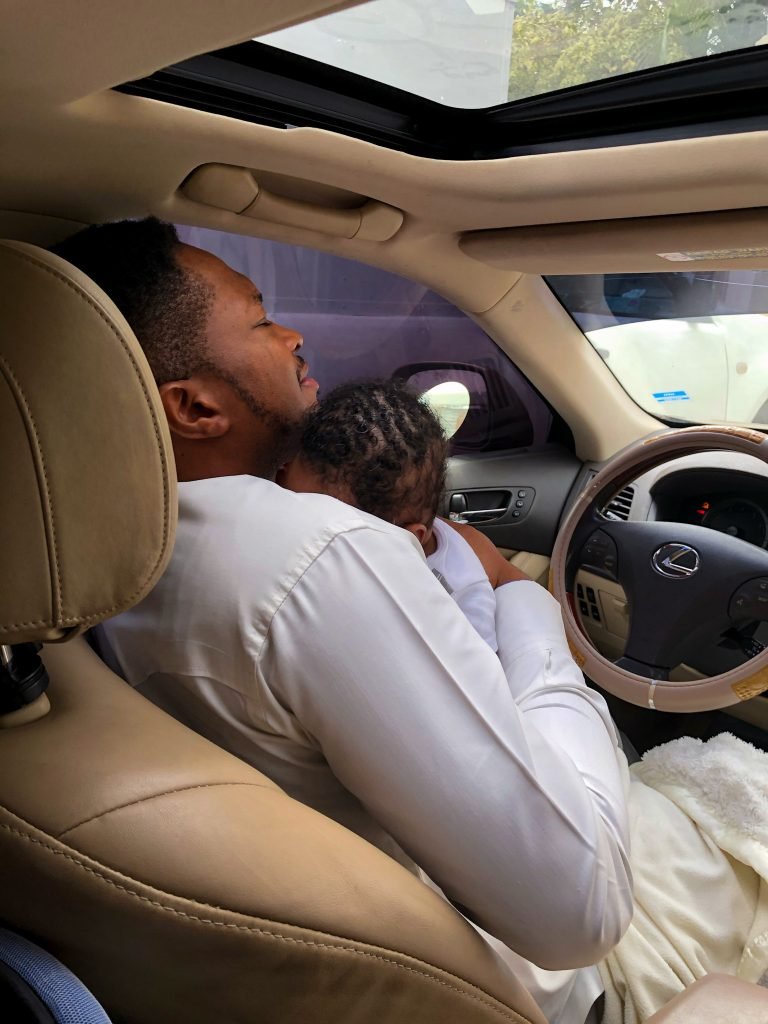Everything you do now to become a better man is like a deposit into your future as a father.
Long before I had children of my own, I made a quiet vow to them, to live a life they would never have to recover from. That decision shaped so many choices in my youth and early adulthood. It set a guard over my actions, my friendships, and my heart. Even before I knew their names or saw their faces, I was already living in a way that honoured their future.
I lived with the consciousness of never bringing shame or disrepute to them. I wanted every version of me they would ever find, online, in stories, or in people’s mouths, to be something they could be proud of. No, I’m not perfect. But there are decisions that define the kind of legacy you’ll leave.
So How Can Young Men Begin This Preparation?
Build a Walk with God
Before a man becomes a father, he is first a son. A brother. A friend. A leader. And most importantly, a man under God. Who you are before fatherhood often determines who you’ll be in it. Fatherhood requires wisdom, patience, grace, and strength that cannot be mustered by sheer willpower. It must be drawn from a deep well, a relationship with God.
The kind of man who will raise godly children must first be a son under the leadership and fatherhood of God. Learn to walk with God now. Not just in head knowledge, but in daily obedience, surrender, and dependence. Don’t wait until your child is in your arms before you start learning how to carry the weight of fatherhood. The best fathers don’t just show up. They grow up first.
Heal from Father Wounds
Many men carry silent wounds from absent, abusive, or emotionally distant fathers. These wounds, if ignored, can become the script they unknowingly act out in their own families. Begin your healing journey. Seek counsel. Talk to trusted mentors. Allow God to father you where your earthly father could not.
You cannot give what you haven’t received.
Healed hearts father from a place of wholeness.
Ask yourself:
- What do I wish my father had done differently?
- Where do I feel pain or resentment when I think of my upbringing?
- Have I truly forgiven him?
Healing doesn’t mean pretending it didn’t hurt. It means bringing those hurts to God and allowing Him to rewrite your story. Your healing will create room for your children to grow up emotionally safe and spiritually whole.
Fatherhood will stretch your patience, test your priorities, and require wisdom you don’t have on your own. The best thing you can do now is to start walking with God who has all the wisdom you’ll ever need.
As a boy, young man, married or unmarried,
- Spend time daily in prayer and the Word of God.
- Cultivate a tender, listening heart.
- Obey God even in the small things, because one day, little eyes will be watching your every move.
When your children arrive, your spiritual habits will become more than just personal, they’ll become your legacy.
Cultivate Emotional Awareness
Children, especially in their early years, thrive on emotional connection. A man who cannot name his emotions or manage them in healthy ways will struggle to connect deeply with his children, especially his sons. So, begin now to unlearn emotional suppression and develop emotionally. Learn to feel, express, and process your emotions with maturity.
Let the Boys Cry: We must unwrite the lie that says, “It’s not okay for men to cry.” Why not? Aren’t they human too?
Boys shouldn’t be taught to suppress their emotions just because they are male. That suppression creates emotionally distant men who struggle to express themselves or communicate in relationships. The truth is, many communication breakdowns in marriages come from years of emotional repression. The man becomes a stranger to his own heart because he was trained to numb his feelings, to be “strong” in all the wrong ways.
But fatherhood requires emotional presence. Sons need to see their fathers cry, pray, apologize, rejoice, and feel deeply.
Daughters need to know that a godly man is both strong and tender. Father should begin to tell their sons: “Your tears are not weakness. Your heart is not a burden. Your emotions matter too.”
Fathers, Say “I Love You” Too: It is okay for men to tell their sons, “I love you.”
It’s important for sons to hear those words from their fathers, don’t hold it back from them. Don’t assume they know, you need to say it. Words of love reinforce the truth of your actions. Even if you didn’t grow up hearing “I love you” from your father, you can decide to break that cycle. God is vocal about His love for us. He doesn’t hide it. He takes every opportunity to express His love for His children, and fathers should follow this example. So, let your sons hear it. Let them feel it. And let them carry that love as they grow into men.
You don’t have to be soft to be emotionally present. You just have to be real.
Learn to:
- Recognize what you’re feeling and why.
- Express your emotions in healthy, non-destructive ways.
- Sit with discomfort without running from it.
A man who can acknowledge his own emotions is better equipped to raise children who aren’t afraid to feel, process, and grow.
Practice Servant Leadership
Leadership in the home is not about domination; it’s about service. Start practicing servant leadership now in your relationships, in your friendships, even at work. How do you handle responsibility? How do you respond when things go wrong? Are you willing to do the hard, unseen things for the good of others? These small acts prepare you for the weight of fatherhood. Leadership in the home isn’t about barking orders or demanding respect. It’s about modeling love through service.
Start small:
- Serve your siblings, roommates, or wife with kindness and humility.
- Lead with empathy.
- Own your mistakes, apologize when needed, and take initiative without being asked.
The kind of man who leads well in everyday life will lead well in fatherhood.
Spiritual Leadership Begins at Home
Having a firm hold as a man in the home is so important that Apostle Paul included it as a requirement for church leadership. In his letters to Timothy. He said a man who would be a leader in church “must manage his own household well, with all dignity keeping his children submissive, for if someone does not know how to manage his own household, how will he care for God’s church?”(1 Timothy 3:4–5)
In other words, Paul is telling us that the home is the first pulpit. It’s where character is tested, refined, and proven. God doesn’t just watch how you serve in church; He watches how you serve at home, how you treat your wife, how you raise your children, how you carry the weight of responsibility with grace and integrity.
Paul was saying before a man can pastor a congregation, he must first pastor his home.
Observe Healthy Father Figures
If you didn’t grow up with a godly example, find one now. You don’t have to have had a good father to become one. Seek out mentors and spiritual fathers who model what you want to become. Watch how they speak to their wives, play with their children, handle conflict, and live out their faith. Take notes. Ask questions. Let their example fill the gaps your own upbringing may have left behind. You don’t have to repeat unhealthy patterns, you can break them by choosing a new path. Learn from their strengths and even from their regrets.
It’s essential to find brothers in Christ, men who will hold you accountable, offer wisdom, and walk beside you in your growth. Strong men don’t isolate themselves; they lean on their brothers. Seek out those who share your values and aspirations for fatherhood and grow together. Even if it’s a small group of friends, mentors, or a church community, the right fellowship can be very beneficial in your development as a father.
Dear young man…
Becoming a father is more than a biological event. It’s a spiritual calling, an emotional journey, and a lifetime responsibility.
The earlier you start preparing, the stronger your foundation will be. Don’t wait until your wife is pregnant to start thinking like a father. The seeds of fatherhood are planted in who you’re becoming today. You don’t become a father on the day your child is born. You become a father the day you decide to grow into one.
Proverbs 23:24: “The father of a righteous child has great joy; a man who fathers a wise son rejoices in him.”
Raise your boys to be fathers you would be proud of. Don’t just train them to be obedient sons, train them to be future fathers.
Let the boys become those fathers, and let the fathers raise their sons with that day in mind.
One day, your son will hold a child of his own. And in that moment, all the seeds you’ve sown, by your words, your modeling, your love, will begin to bloom.






